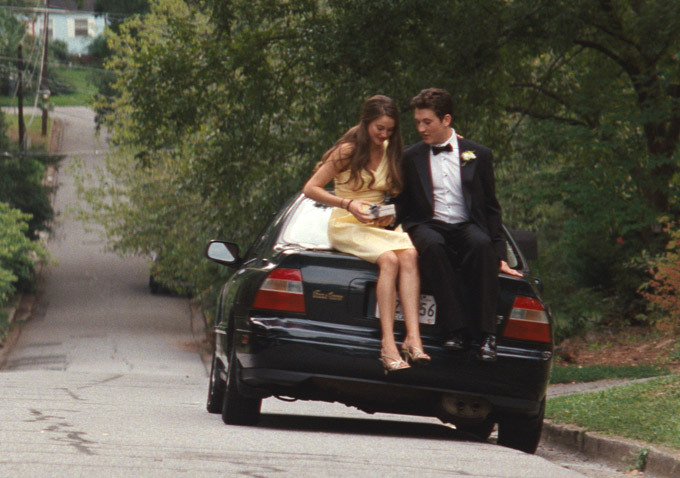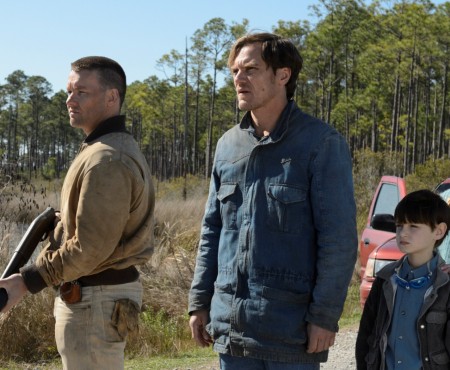B+
Addiction is a tough nut to crack in cinematic storytelling. Treat it too seriously, and a film can often devolve into a PSA of unsubtle, parodic levels. Treat it too lightly, and the portrayal can come off as trivial. It’s a tightrope that filmmakers must walk and rarely come out completely balanced on. Enter James Ponsoldt, a filmmaker who has addressed alcoholism in each of his films with a delicacy that achieves this balance and then some. The secret? Treating characters struggling with addiction like human beings, not ciphers for a message. His latest film, The Spectacular Now, tackles addiction in a way that doesn’t make it the literal center of the film, but rather an anchor for exploring larger ideas about adolescence and relationships without feeling the need to reach tidy resolutions.
The setup is simple: after getting dumped by his girlfriend, high school senior Sutter goes on a bender and blacks out. He wakes up lying in a strange lawn, no idea where his car is, with fellow senior Amy standing over him. After she helps him find his car in exchange for help on her paper route, the two begin to bond over time, helping to peel back each other’s layers of insecurities and qualities.
What impressed me most about the film was the aforementioned balance Ponsoldt is able to achieve here. When the film is funny, it’s hilarious. It never loses sight of needing to have that relief amongst the discussion of more serious subject matter. But when it’s time to get serious, the film effortlessly glides into that mode, and in a completely organic way. It’s a crucial element of the film that is elevated by a stellar cast led by Miles Teller and Shailene Woodley.
The two actors inhabit their roles naturally and with grace and maturity, never letting these people become two-dimensional caricatures, and instead infusing each scene with little nuances that are just dripping with subtext. Woodley, having impressed two years ago in Alexander Payne’s The Descendants, proves that she’s here to stay, tackling a truly challenging role without so much as breaking a sweat. Like the film itself, she doesn’t indulge in neat truisms about the character, or her relationship with Sutter. There are some really, dark, uncomfortable places the relationship must go, leaving us wondering if it is a healthy attraction at all, and Woodley doesn’t provide a clear answer in the portrayal, only hints of uncertainty.
Not having been familiar with Miles Teller outside of a few cameos I’ve seen him in, I found him to be a bit of a revelation here. Sutter is a character that has to be funny, magnetic, and go to a lot of dark places of self-reflection all at once, and Teller handles it perfectly. A budding alcoholic, he’s never far from his super-sized cup filled with whiskey from his flask, and he comes to school, work, and every social interaction completely loaded. It’s just who he is to him, but it becomes an increasing problem when Amy begins to follow in his footsteps out of desire to fit in with him, and when it continues to put his life, and the lives of those he cares about, in physical danger. The film never outright addresses the issue as one of addiction, but builds towards gradual outcomes that thrust the problem into Sutter’s face.
The star of all this is a script by Michael H. Weber and Scott Neustadter, the scribes behind (500) Days of Summer. Their previous film fell under criticism that it presented a warped perspective of a man who didn’t understand that his failed or troubled relationships were secretly due to his own personal faults. It’s a criticism I don’t necessarily agree with, but I can see the reasoning behind it. If that’s the case, then The Spectacular Now represents a quantum leap forward in maturity, with the script actively having Sutter address the notion that he is poisonous and that his relationships with people in his life, particularly with Amy, are toxic and unhealthy. It’s a notion that really goes into unexpectedly dark, mature territory, and the film is a richer piece of storytelling for it. The Spectacular Now upset me on a deep, personal level, and not because the film is bad, but because it’s so good at addressing uncomfortable facets of people and relationships that it felt like watching my heart getting torn out and put on screen, resulting in a film filled with catharsis and subtext that I wholeheartedly recommend seeking out.
Here’s more coverage from SXSW 2013




















